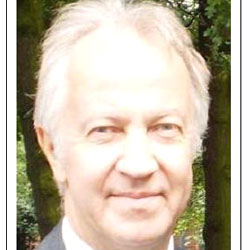Report: The Media & the 2020 Bidding Process
April 10, 2013
The media is fulfilling its usual variegated role in the 2020 Olympic bidding campaign.
Rules laid down by the International Olympic Committee restrict the occasions on which bid leaders from Istanbul, Madrid and Tokyo may raise their heads above the presentational parapet (SportAccord next month then the IOC, firstly in Lausanne and finally in Buenos Aires).
Simultaneously IOC members are forbidden – on pain of being savaged by Jacques Rogge’s curia – from official visits to the bid cities, though the IOC lacks a WADA-style whereabouts system to check private tourism.
Cities also put their people in the accidental way of IOC members at federation events and championships. Bid ambassadors are not appointed merely to look pretty: they are appointed because they own a right of access to their sports’ VIP lounges.
That can be planned but only up to a point: hence the need to impress the media on the few set-piece occasions that generate opportunities for the cities to create headlines which may be noted by the members.
A press release joust also exists. Rival bids haste to ally their city to the latest positive report on the national economy or bid sponsor. Right now this joust is being fought exclusively by Tokyo and Istanbul; Madrid, trapped in its eurozone context, has no economic good news to trumpet.
The most concentrated media opportunities arose last month when the 2020 evaluation commission, headed by Sir Craig Reedie, made its flying visits to Tokyo, Madrid and Istanbul. To extend the airline metaphor, the media ‘flew’ business-class in Tokyo, economy in Madrid then first-class in Istanbul.
Does that influence the reports and the headlines? It should not. But it does.
Perhaps the most spectacularly media-friendly exercise was undertaken at the 2006 World Cup finals in Germany by Deutsche Bahn. All accredited media were granted free first-class travel the length and breadth of the country. Media reflections on Germany as host nation were as electrifying as the trains themselves.
This may appear simplistic but it matters; just as irritation lingers beneath the surface over the IOC’s refusal to understand the virtue of free internet access for the media.
This writer followed the ‘Reedie roadshow’ to all three cities.
One downtime issue was whether a city gained any advantage from emerging first or last in the visitation draw. Consensus beforehand was that it mattered little but Istanbul did benefit from being last because it had observed the media ‘tricks’ of Tokyo and Madrid and trumped them all in style.
An example: in Istanbul a nucleus of the ‘Olympic-specific’ international media had an enlightening and generous hour with state President Gul; in Madrid the media were allowed merely to watch Prince Felipe at an IOC reception from a safe 20m distance; in Tokyo there was no interaction with head of state or government.
Hence a perception – not necessarily anything more – that Istanbul valued the media more highly than either of its rivals.
In Istanbul the media working conditions were cleverly chosen: a converted hotel restaurant which looked out over the Bosphorus and down to St Sophia. Below ground in Tokyo and Madrid the reporters could have been anywhere: there was no powerful inspirational vision every time they looked up.
Madrid’s media message might have benefited had the security staff understood that they were also front-line city ambassadors. A stoney-faced, pedantic, nit-picking welcoming style was bid-unfriendly.
As per the cliche: ‘You have only one opportunity to make a first impression.’
How did the media respond to the Olympic challenge?
Tokyo celebrated enthusiastic coverage from the local media plus a dozen or more inquiring journalists from Turkey plus the internationals. In return the Japanese media turned out in force in Madrid and Istanbul. The Spanish media turned out only in Madrid.
In media rankings Istanbul was a decisive winner with Tokyo a perfectly honorable runner-up and Madrid trailing in third.
Impressions, perceptions, illusions, even delusions.
Whatever the media momentum its significance should be assessed with care.
No-one on the IOC will vote one way or the other based on what the media thinks and writes. But, of course, subliminal support along the way does no harm.
Keir Radnedge has been covering football worldwide for more than 40 years, writing 33 books, from tournament guides to comprehensive encyclopedias, aimed at all ages.
His journalism career included The Daily Mail for 20 years as well as The Guardian and other national newspapers and magazines in the UK and around the world. He is a former editor, and remains a lead columnist, with World Soccer, generally recognised as the premier English language magazine on global football.
In addition to his writing, Keir has been a regular analyst for BBC radio and television, Sky Sports, Sky News, Aljazeera and CNN.
Keir Radnedge’s Twitter: @KeirRadnedge
{jcomments on}


